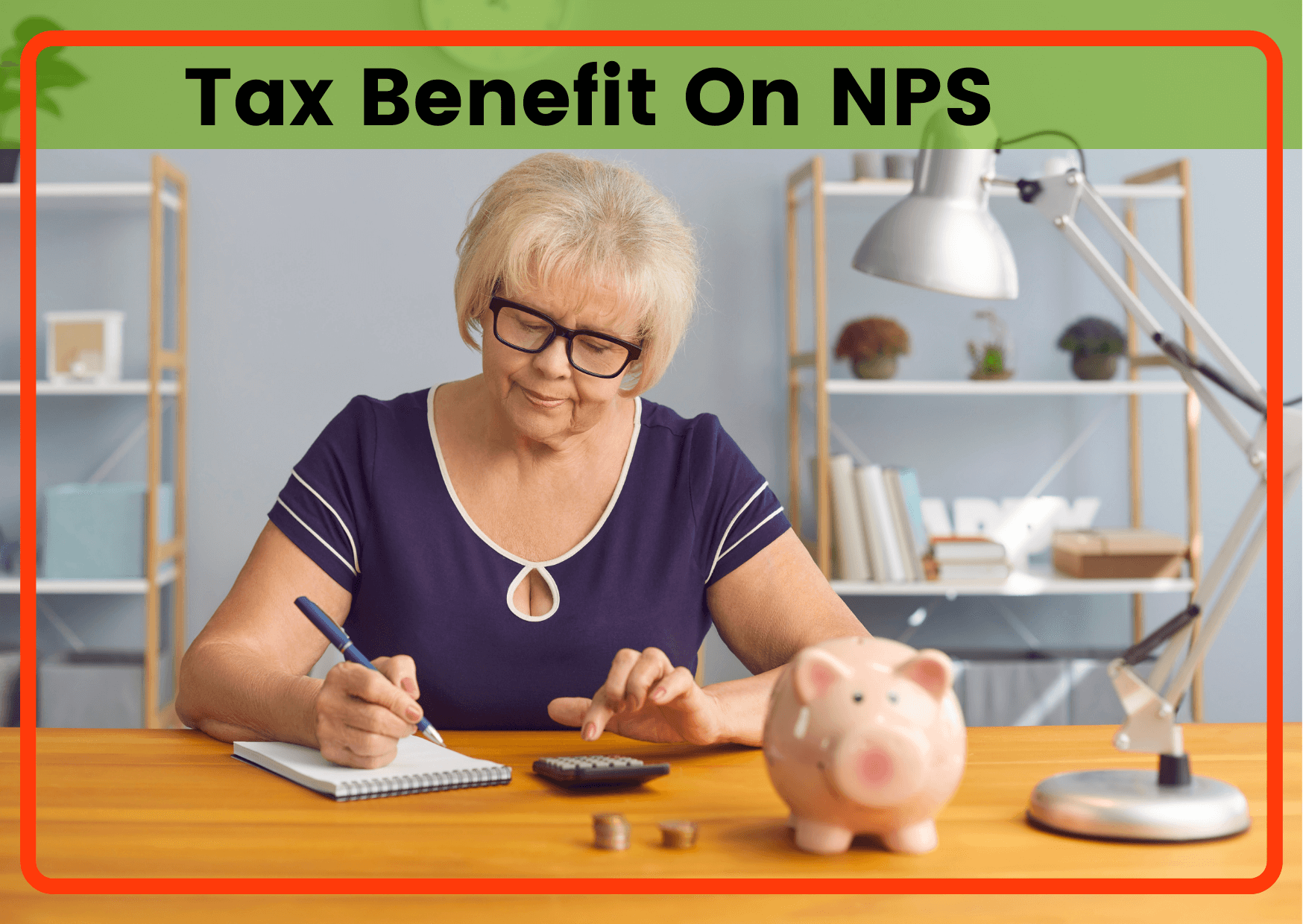For most of us, tax benefits is one key factor while deciding where to invest money. Among the multiple investment options available in India, National Pension Scheme or NPS as it is popularly called offers huge tax benefits. In this article, I will detail the different Tax Benefit On NPS which you can enjoy.
NPS Tax Benefits Under Section 80CCD(1)
Under Section 80CCD(1), upto 1.5L deduction can be claimed towards tax exemption by any individual NPS subscriber irrespective of whether he/she is government employee, private employee or self employed individual. To avail this, contribution should be made in Tier 1 of NPS and you should be between 18 – 65 years of age.
Just keep in mind the following things when availing deduction under this section:
- Maximum permissible deduction under section 80CCD(1) is 10% of salary (basic+DA) for salaried employee and 20% of gross income for self-employed individuals.
- Section 80CCD(1) is part of section 80C under which you also have other tax saving options like EPF, PPF, Housing loan, Education Loan, Sukanya, Insurance etc. Thus it is not very difficult to exhaust this limit even without using NPS tax exemption.
Note – This deduction can be claimed by both Indian citizens and NRIs.
Tax Benefit of NPS Under Section 80CCD(1B)
Apart from 1.5L deduction under section 80CCD(1), additional tax benefit of NPS is the 50,000/- deduction available for all Indian citizens. This deduction is available for contribution done on NPS Tier 1 and is over and above the 1.5L claimed under 80C. Infact, below image from NPS Ki Pathshala youtube channel shows that NPS Tax Benefit under Section 80CCD(1B) alone can save you about 7Lakh rupees across 20 years.

Tax Benefit In NPS Under Section 80CCD(2)
You can avail additional tax benefit in NPS Tier 1 if you ask your employer to contribute towards your NPS fund. As per the rules, employer contribution upto 10% of Basic + DA can be claimed as tax exemption. This limit is 14% for government employees.
Tip – The best part is that there is no limit to this deduction. So even the highly paid employees can avail this benefit.
Cherry on top is that even employers get an incentive to offer contribution to employees under section 80CCD(2). Employers will be able to deduct this 10% Basic+DA contribution as Business expense from their Profit & Loss Account this making it win-win for both employers and employees. So next time your company says that they do not allow employer side NPS contribution, tell them about this benefit and see their reaction change 🙂

Special Tax Benefit in NPS For Government Employees
Benefit Under Section 80CCD(2)
For Central and State Government Employees, employer contribution under Section 80CCD(2) is now upto 14% of Basic + DA instead of 10%.
Tax Benefit of NPS On Tier 2
This benefit is available only for Central government employees. Just like ELSS, central government employees can claim tax benefits upto 1.5L under section 80C if they invest in Tier 2 of NPS (TTS Scheme). Note that the money will be locked in for 3 years. For this, minimum investment has to be 1000/- rupees and subsequent contribution can be minimum 250/- rupees.
Tax Benefit Offered By NPS At Retirement
Above mentioned tax benefits on NPS were during the time you are investing. Coming to retirement part, NPS allows upto 60% of retirement corpus as lumpsum withdrawal while the remaining has to be mandatorily converted into annuity plan. The good thing is that there is no tax levied on this lumpsum withdrawal making it an E-E-E category where all investments-returns-withdrawals are tax free.
From the remaining amount, you will have to buy an Annuity plan which gives you monthly pension. This amount invested towards purchase of Annuity is fully tax exempt i.e. you do not have to pay any taxes on it. However, the pension you get will be taxable as per your annual income at that time making this 40% as your E-E-T category where investments and returns are tax free but withdrawals (in the form of pension) is taxable.
Note – Lumpsum Withdrawal of NPS is E-E-E while Pension from Annuity becomes E-E-T
Note – You do not have to pay GST on the corpus used to purchase Annuity plan
Tip – Treat annuity pension as your retirement salary and use tax saving options to reduce tax to be paid on it
NPS Tax Benefit On Partial Withdrawal
As mentioned in my earlier article – 9 Things You Did Not Know About NPS – , you can now do partial withdrawal from NPS Tier 1 account. The amount withdrawn in such case is tax exempt according to Budget 2017.
Tax Benefits Given By NPS In Old vs New Regime
NPS is the only scheme which allows tax exemption under both old and new tax regime. While Tax Deductions under Section 80CCD(1) and 80CCD(1B) are allowed only under Old tax regime, Employer contribution under Section 80CCD(2) is tax exempted for both Old and New tax regime.
Tip – Dont forget to claim deduction on Employers Contribution under Section 80CCD(2) of NPS even in New Tax Regime
Capital Gains Related Tax Benefit on NPS
In Mutual Funds, if you want to change your scheme from one AMC provider to another (like ICICI to HDFC) or from one category to another (like from large cap to mid cap), the process will attract capital gains on which tax will have to be paid. This is not the case in NPS. You can not only change your Fund Managers (like from ICICI to HDFC) but also change your scheme preference (like from active to auto aggressive). And there will not be any tax paid for doing this in NPS.
Tax Treatment for NPS Tier 2 Withdrawals
Profits from Tier 2 withdrawal will be treated as capital gains and you will have to pay Short Term Capital Gain (STCG) / Long Term Capital Gain (LTCG) on them.
Note – Capital Withdrawal from Tier 2 before 1 year will have STCG and after 1 year will have LTCG.
Tax On Amount Received From NPS By Nominee
In case of death of NPS subscriber, the Nominee can withdraw the corpus. And the best part is that he/she will not be taxed on the amount received.
Conclusion
Thus it can be seen that there are numerous tax benefits available on NPS. All these along with low expenses, automatic portfolio diversification and age based risk mitigation make NPS one of the best retirement planning tools to invest in!
Hope you liked the article. Please feel free to share your feedback.


